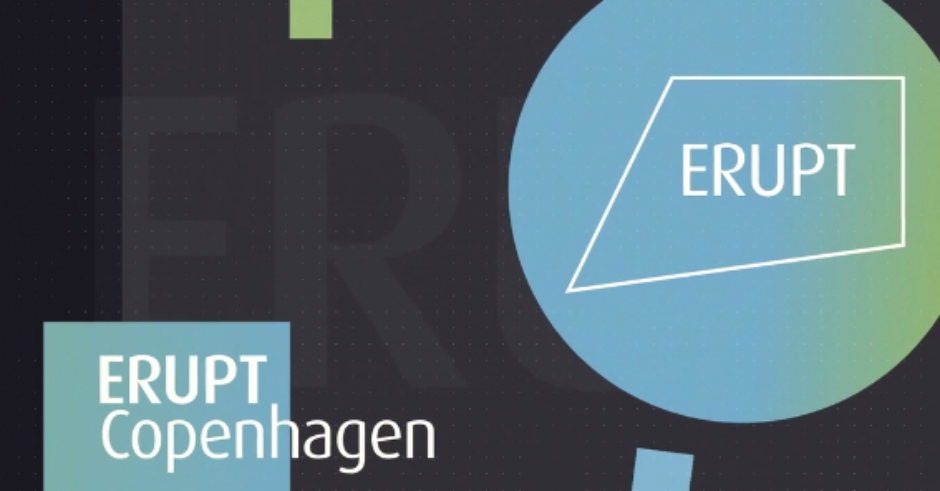Following on from the successful theatre-style ERUPT events in Berlin, Munich, Stockholm, Copenhagen & London, the BTN hosted its first VIP roundtable conversation in Copenhagen for business leaders with the IT industry.
The topic of ‘Disrupting Old School Industries’ was the main discussion point with a focus on the impact of digital technology. The evening was set to shape what disruption really means to C-level executives?
23 attendees were present to look at how to successfully generate a great business idea that has the potential to scale up the product and team, what some of the major challenges internally as an organisation looks to become an established business and how to change/challenge consumer and employer mindsets.
The conversation started by looking at some of the challenges that start-up organisations face when going through the scale-up process and some of the geographically challenges that can arise during these transitional changes. The discussion concentrated on the technical roles within an organisation during this period of change and attendees positioned their opinions on whether having all in 1 location vs a remote workforce. The point was raised that getting autonomous teams to work with each other is a struggle and having a dispersed workforce takes away boundaries and cultural differences between employees. What are the impacts of having a fully remote Vs fully office-based team?
As an organisation starts to grow and remote hiring becomes a factor, how can us as employers optimise your office to allow for employees to engage with those who are remote-first, such as developers? As employers, how do we ensure our employer value proposition is focal on growth? We need to ensure we are spending money on our brand as well as recruitment and the in-house recruitment team is key to scaling, with a strong on emphasis on employees being proud of where they work and therefore utilising referrals.
Bringing your entire workforce together regularly was passionately expressed as a way of building a culture of belonging, even when employees are remote with a level of importance in getting employees to interact with those that they don’t spend their day-to-day roles with.
The discussion led to what an organisation considers as a successful small team with one guest alluding to ‘Dunbar’s number’ as a point of reference, which is the suggested cognitive limit that a certain individual can maintain a stable relationship with at a given time. Therefore, bringing this back to the role of remote teams who aren’t necessarily in the main office but are based within a set location.
Branding and EVP seem to play a huge part in the start-up to scale-up piece and the success of a scaling disruptive organisation can be directly influenced by how active the organisation is within their wider community with regards to Meetups and activities to help grow their talent network.
As the group moved onto the topic of disruption itself, there was a few views as to what disruption meant to the individuals themselves and the organisations as a whole. Is disruption simply fear?
One of the attendees suggested that disruption is talked about considerably more about in the companies that are actually being disrupted, whereas the disrupters are just doing their job and scaling. Disruption is doing the small things very well and seeing the benefits.
Automation is making the biggest impacts in disrupting industries as we can automate what someone (a person) once used to do and free up time to do something more beneficial and potentially strategic.
The agreed consensus was that there is an abundance of hype over how much should we disrupt and that as much as disruption is an agenda, it is also a balancing act. How important is the timing of the disruption to the success of the disruption? Is it better to be 2nd inline rather than lead from the front?
When looking to embrace the lifecycle of disruption, how key is the culture? The group then looked at getting the whole company on-board with the strategic role of disruption and building a culture of innovation. Can you get smart people doing smart things to solve a problem, in collaboration? That is success! Championing them same people to have a disruptive culture and having the freedom to act, fail and learn is key.
The conversation around the war for talent was always at the back of minds during the conversation, whereas the importance of leadership and management came very much to the forefront of the roundtable. Managers are pivotal to ensuring direction and if you create a culture of disruptive leadership, then strategic direction can help people create own culture of innovation.
When scaling, feedback is so important and so is the ability from management to decide ‘what not to do’. Truly understanding about how to get better is all about not looking back in hindsight and not assigning fault or blame.
Scaling up is difficult but the room showcased some of the best organisations in Denmark that had already scaled or were rapidly scaling and all the attendees took away something that they can take back to their office.
Sign up at www.thebtn.tv/join for more events and content




